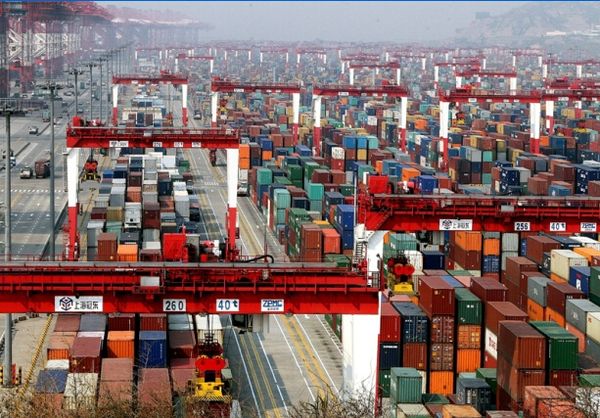Congestion at Yantian Port pushes container spot prices to new highs

Affected by the increasing congestion of China's export gateway, Yantian, and major receiving stations in Auckland and Hamburg, the Shanghai Contained Freight Index (Shanghai Contained Freight Index) rose again today by 3.3%, setting a new high. The Shanghai Composite Index rose 117 points to close at 3,613 points, up 157% year-on-year.
Similarly, the weekly World Container Index released by Drewry yesterday showed that shippers need to cope with more price surges. Currently, the global average price of a feu is US$6,473.78, which is more than 3.5 times the price at this time last year.
Shipping analysts said that the upper limit of container freight has yet to be determined.
Local events often cause global impact
Simon Heaney, senior manager of container research at Drewry, a British consulting firm, said: “There are currently no obstacles preventing interest rates from continuing to rise.” “Demand is still soaring, port productivity and equipment availability are deteriorating. Unless these conditions change-we think it will be the earliest. Changes will only take place in the fourth quarter of 21-otherwise prices will continue to rise."
Alphaliner shipping analyst Jan Tiedemann commented: “The increase in SCFI prices seems to continue for some time.” He believes that in the long run, most carriers expect prices to return to the “new normal”, which is higher than before the coronavirus infection. The level is about 10-20% higher.
There are currently no obstacles preventing interest rates from continuing to rise
BIMCO's chief shipping analyst Peter Sand said that the next full-scale increase in freight rates on June 15 may further push up freight rates.
"The current supply chain crisis is the catalyst; he then mentioned the new crown pneumonia epidemic, which has affected the production of Yantian. There are more than 40 ships waiting to be anchored (see the picture below). Yesterday, Taiwan’s largest port Kaohsiung had a dramatic double crane collapse. .
Lars Jensen, CEO of Vespucci Maritime, a Danish consulting company, commented: “It is clear that the current pricing of spot goods is determined by the fact that capacity is insufficient.” Jensen believes that when enough shippers are due to excessive prices When being squeezed out of the market, an upper limit may be reached.
"Pricing is now directly linked to the value of the goods being touched - or more appropriately the impact on the importing country if the goods do not move," Jensen said, adding: "This is the upper limit of the point, which is sufficient for many shippers to become the pricing In the market, will give up bookings."
